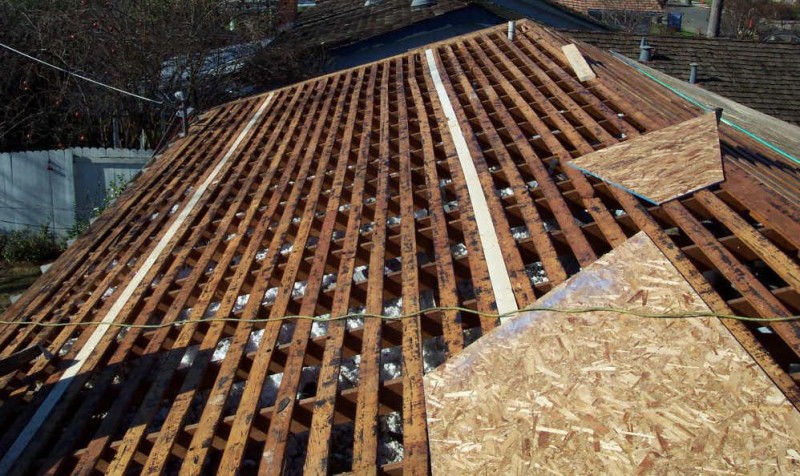What Your Roof Repair Process Should Look Like

By Cass Jacoby, RCS Reporter.
A homeowner's guide to choosing a contractor and the reroofing process.
If you have a roof old enough to see a PG-13 movie on its own, or one that is showing signs of deterioration and leaks, it is time to call a roofing professional for a consultation. Wind, rain and hail all have the ability to damage your roof; it is impossible to avoid roof repair indefinitely. Read ahead to learn what to expect from the roofing process and how to navigate it like a seasoned pro.
Some states don't require a state license or registration for roofing contractors. So, homeowners must be vigilant in finding a reputable, qualified and local contractor. Luckily, The Kansas Roofing Association (KRA) is a group of dedicated roofing professionals eager to better the roofing profession through education and the greater pursuit of a quality product. When you choose a KRA member for your project, you can rest assured you have a contractor with an excellent track record and is a top competitor in the roofing community.
Choose the right contractor
Choosing the right contractor is critical. You want to make sure you get at least three written estimates based on the same quality of materials, that also include the time needed to complete the project. Be sure to ask questions about how work will proceed and how debris will be handled so you know what to expect as the project commences. Note where the differences in your bids are coming from, don't automatically choose the lowest estimate.
Verify the name, address, telephone number and references of your roofing contractor. Ensure your roofer is insured and ask if they are a member of a professional trade association like KRA. Get a list of completed projects in your area, and go take a look at the contractor's work to see the quality you can expect. Be wary of a contractor whose references are all out of state, who wants money before the materials are on-site, and who is not an established community member.
The contract
If anything has been verbally promised, it should be in writing. A contract can be as simple as a signed proposal, and it should have the contractor's name, address and phone number. All areas of work, including materials, should be described. For example, if a layer needs to be removed, make sure that it is outlined in your bid. Consider a standard AIA (American Institute of Architects) contract form (available at most business supply stores) for large jobs where monthly payments will be necessary. Whatever document you choose, your contractor should supply two copies, one of which is for you to keep, that are signed by both of you. Keep any receipts and pay by check.
It is common with a regular-sized house to pay one-third to one-half the cost of the job when the materials are delivered on your property. The balance due is then paid when the job is completed. This can vary depending on where you’re located and the contractor, but should be worked out and written into your agreement. If you will pay in conjunction with a building loan or insurance claim, or if there is any reason for deferred payment, this should be agreed on in writing by both parties. Warranties and guarantees should also be part of the written contract.
Most of the time, a roofing permit is required. Check with your contractor or the permits department at your city hall for this information and make sure it’s explicit who will obtain and post this permit.
The job
If you have properly done the paperwork and pre-job planned, then you can rest assured you have done everything you can to ensure your buildings’ upgrade is effective and long lasting. If you have a written and signed proposal, a copy of their insurance, and you have gone over the scope of the work, then your roofer is ready to go to work.
Don’t forget to factor in the weather; most roofing applications cannot be worked on during rainy weather. Expect the number of working days to increase if it rains during the process.
If things are on track, let them work. If you are unsure of the progress, speak with your contractor; it is not unreasonable to expect a daily report. Still, the best you can do is have confidence in your choice at this point in the process.
Final payment
By the time you make your final payment, all work should be done, grounds cleaned and warranties should be dated and signed. Keep these warranties and receipts in case of severe weather damage in the future. If you are happy with your contractor's work, be sure to let them know and leave them a positive review.
Have a question? AskARoofer.
Find your local roofing contractor in the RoofersCoffeeShop® Contractor Directory.
Recommended For You

Understanding underlayment
Read More ...
Q & A - What is Skip Sheathing Roofing?
Read More ...
How to Spot Costly Roof Repairs Before You Buy
Read More ...




Comments
Leave a Reply
Have an account? Login to leave a comment!
Sign In